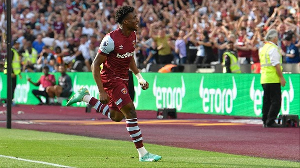One fascinating aspect of my work as a couples/ family therapist is that it gives me an intimate view into the current cultural dynamics of couples. For the last twenty or so years, over half the couples I see contain the “nice guy” with his frustrated wife.
We don’t talk too much about the problems that this “nice guy” creates in his marriage; that’s because these dynamics are often quite subtle, nearly invisible to the naked eye. After all, is there really such a thing as a husband who’s too nice? To that, I answer a resounding “Yes”!
It’s hard to think about the state of men and women without taking into account the huge societal shifts that have transpired over the last thirty to forty years. Sometimes, when I see young men pushing their toddlers in a stroller, I smile. It wasn’t too long ago that this daddy-baby scene would have been rare, and a cause for remarks.
It makes me very happy to think of young children now being raised by Dads who are more engaged, more open, at all levels of childrearing and family life. For the most part, young and middle-aged men are not the “strong,” silent, disengaged dads so common during the first half of the twentieth century. Today’s relationship dynamics have a more democratic flavor, and overt power differentials are typically more subtle, less overt.
But, alas, guys are still guys. They come with powerful desires, emotional and sexual. Not all of these desires are “correct.” In fact, many men would probably acknowledge that, inside, they are dogs. Of course, this “inner dog” should not, for the most part, be unleashed. But it IS important that men learn to value their “inner dog.” The dog inside most guys deserves respect, or at least tolerance.
Amusement is a good response, too. To me, the most troublesome guys are the ones who deny this inner beast. I’ve seen many, many couples where the guy adopts a tame(ed) persona, but who does damage to the relationship in the form of an affair.
He doesn’t acknowledge his beast to himself-or, God forbid, his partner-and ends up having crazy sex with a co-worker or someone he picked up at a bar. These “nice guys” rarely acknowledged their sexual or emotional hunger to their partner, or, if they tried, it didn’t go well.
True, the (too) “nice man” is made, not born. And sometimes, his partner has-often inadvertently- aided and abetted the creation of this nice guy. But, in the couples that I see, the too-nice, too-polite guy proves, ultimately, an unsatisfying partner. (I’m going to use heterosexual language here, but I’ve observed the same phenomenon in same-sex partners.)
In the couples I see, the woman of the too-nice guy is either furious at him, and kicking the stuffing out of him, or depressed and isolated within the relationship.
Often, these women are unconsciously longing for a man strong enough to respond when challenged, who cares enough to fight, who respects himself enough to take his woman on, when needed. I know this is true, because, as the couple grows during the therapy, and the husband becomes bolder and more “himself,” the wife typically likes this new guy and wants to keep him.
Sometimes women in these relationships have, without intending, signaled to their partner that they didn’t want “too much” of him: They may come to the relationship not fully trusting men, because of historical reasons related to their own family.
Perhaps the men in their family were unreliable, or absent, or violent. ( Violence is a terrible distortion of the “inner beast” that we’re talking about.) Or these women may worry that the man will get the “upper hand” if given too much leeway. Control issues.
These are common scenarios I see in my office with the (too) nice guy, who then operates under the mistaken belief that burying his needs, including his animal nature, is a basic requirement to maintain a harmonious household. As we suspect, continuously buried feelings is the recipe for ultimate disharmony. In thinking about the “nice man”‘s animal nature, it’s not only about the sexual aspect.
That’s only one part, and, in my view, not even the most important. Many men don’t allow themselves to acknowledge their emotional hunger, their need for love, admiration, respect. They adopt the “I don’t need anything” persona. This self-deception is certainly limiting for the man himself. And it’s more problematic for the intimate relationship, where an unhealthy balance develops.
The “nice man” from my therapy office, who comes in with marital problems and/or post-affair, doesn’t allow himself — and may not be allowed — the freedom and latitude that come with enjoying one’s own self.
The “animal” that I want to see in a man embodies wants, needs, an open acknowledgment of his hunger for love and respect. Passion, compassion, being able to both win and lose, and, in general, the freedom to be oneself — that’s the fully expressive “inner beast.” To me, both personally and professionally, this is a guy you can trust. That’s the REAL nice man, in my book.
Entertainment of Sunday, 23 October 2016
Source: huffingtonpost.com

















